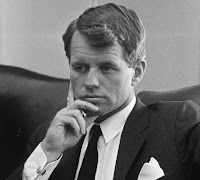I remember having the conversations we all do with my parents about trust - particularly about driving cars. "It's not you that we don't trust (to not have a crash late at night), it's other people". Did they fully trust me, then - to be alert enough to other people, to be cautious (not that I probably was)? Even if they fully did trust me (which I don't think they did deep down - I know they wanted to, though), I don't think they were able to trust my position in the whole situation. Thankfully, they still let me drive, and their trust grew.
I find trusting God hard on the same level. Do I trust God? I think so. I try to. I want to. But do I try to take control of situations? Yep. Do I try to move ahead of God's timing? Yep. Why? The only reason I can see is because I actually don't trust Him completely. That's where the passive/active side of it comes in - is trust sitting and waiting for God to reveal His plans, trusting God's position in the whole situation? Sometimes. Is trust me stepping out in faith first - being active in my trust, knowing that as I do, my trust will grow? Sometimes. That's where I think trust becomes what it really is - a daily discipline. Some days, my trust will mean I need to be patient (something I'm terribly good at...) and wait, and not try and control. Some days, my trust will mean I need to do something - take a step, take a risk, trusting God has led me to do so.
That stresses me out (a ridiculous amount at times) - letting go of control, waiting; or alternatively stepping out in faith, without a clear answer before me. Yet it brings peace, because I know it's up to God, not me; because deep down somewhere I know God will act in the situation, and it's all going to be OK.
But I'm not really even slightly qualified to speak on the subject, so I'll leave it to someone I think should be listened to a lot more than me - Brennan Manning. These words have been messing with me and challenging me for 6 months now:

"The way of trust is a movement into obscurity, into the undefined, into ambiguity, not into some pre-determined, clearly delineated plan for the future. The next step discloses itself only out of a discernment of God acting in the desert of the present moment. The reality of naked trust is the life of a pilgrim who leaves what is nailed down, obvious and secure, and walks into the unknown without any rational explanation to justify the decision or guarantee the future. Why? Because God has signalled the movement and offered it his presence and his promise." - "Ruthless Trust" (p 12-13)
Wow.



